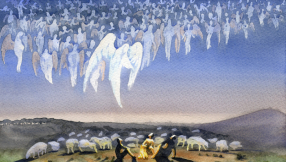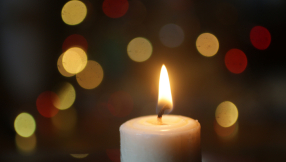Government ministers have challenged critics of the plan to send failed asylum seekers to Rwanda to offer their own solutions.
Church leaders are among the voices condemning the agreement reached with the Rwandan government.
The Archbishop of Canterbury, Justin Welby, used his Easter sermon to accuse the government of "sub-contracting our responsibilities".
He said there were "serious ethical questions" around sending migrants to other countries and that the plan went against "the nature of God".
His predecessor, Lord Williams, came out in support of his position on Monday.
"Is the policy sinful? I think, in a word, yes," he told Times Radio.
"I think that without commenting on the motivation or moral standing of any individual involved, the policy itself seems to me to be not in accord with what I understand about God."
The Archbishop of York, Stephen Cottrell, called for a "better" response to the English Channel migrant crisis.
"After all, there is in law no such thing as an illegal asylum seeker," he said.
"It is the people who exploit them that we need to crack down on, not our sisters and brothers in their need. We don't need to build more barriers and cower in the darkness of the shadows they create."
In a joint article in The Times, Home Secretary Priti Patel and Rwandan foreign minister Vincent Biruta defended the agreement.
They said it would help to prevent small boats from making the dangerous Channel crossing.
"We are taking bold and innovative steps and it's surprising that those institutions that criticise the plans fail to offer their own solutions," they wrote.
Energy Minister Greg Hands similarly defended the policy to Sky News. On whether the government was guilty of outsourcing its responsibilities, he insisted, "No, we're not."
"This is an agreement between two sovereign countries, the UK and Rwanda. I think what others, the critics of this plan, need to do is to show what their solution would be," he said.
Cabinet minister Jacob Rees-Mogg raised the issue of the role of organised crime while speaking on The World This Weekend programme on Radio 4.
He suggested that those coming across the Channel on small boats were unfairly "jumping the queue" ahead of others.
"The problem that is being dealt with is that people are risking their lives in the hands of people traffickers, to get into this country illegally," he said.
"Now, it's not the illegal bit of it, it is the encouragement of people traffickers that needs to be stopped."













